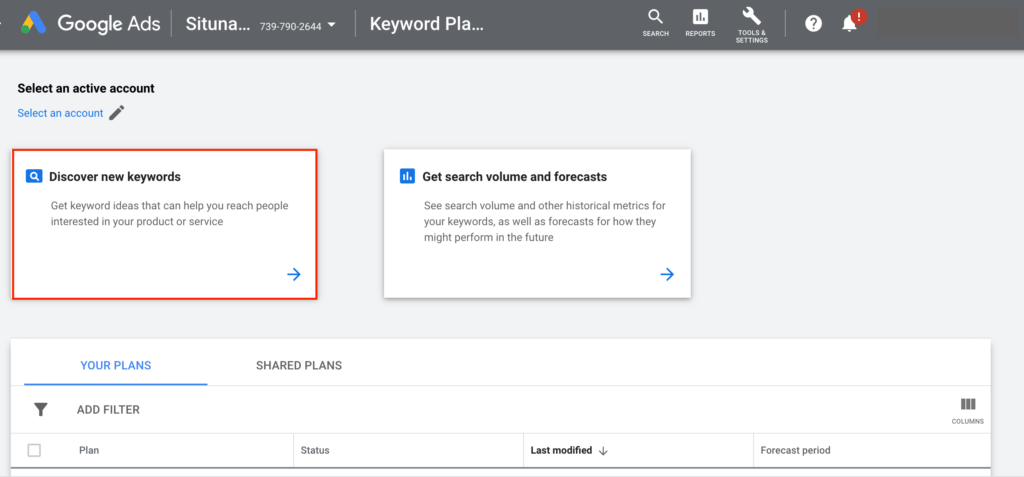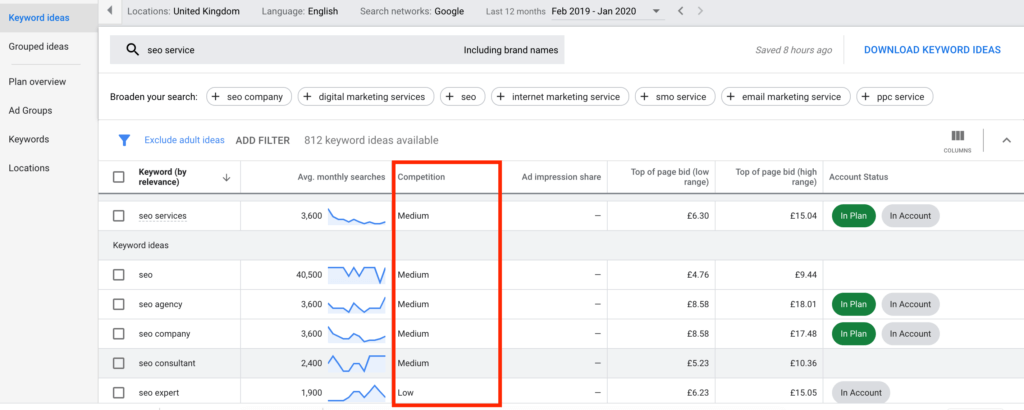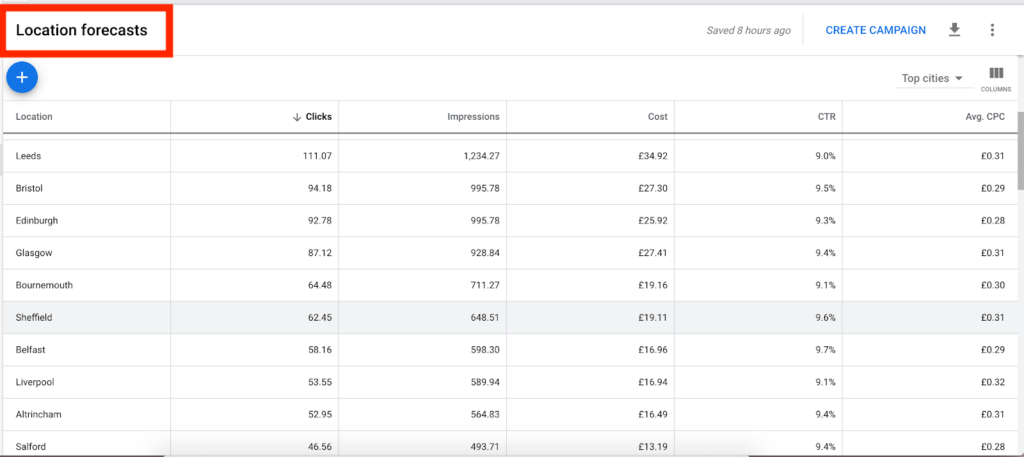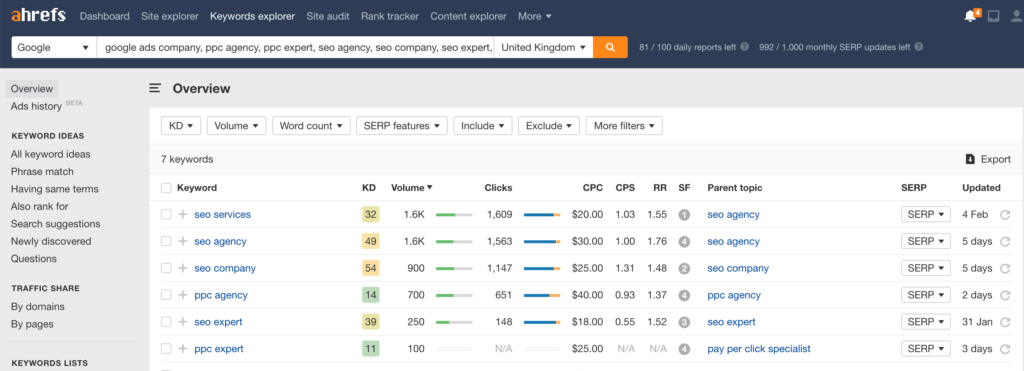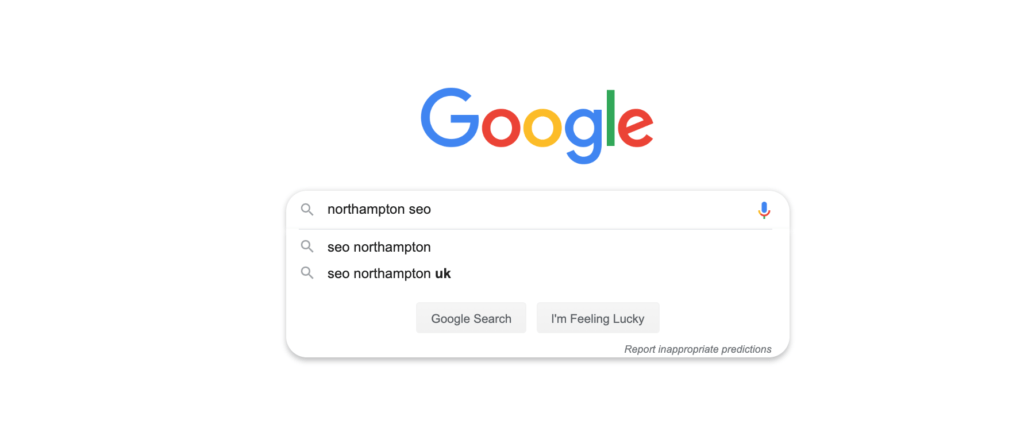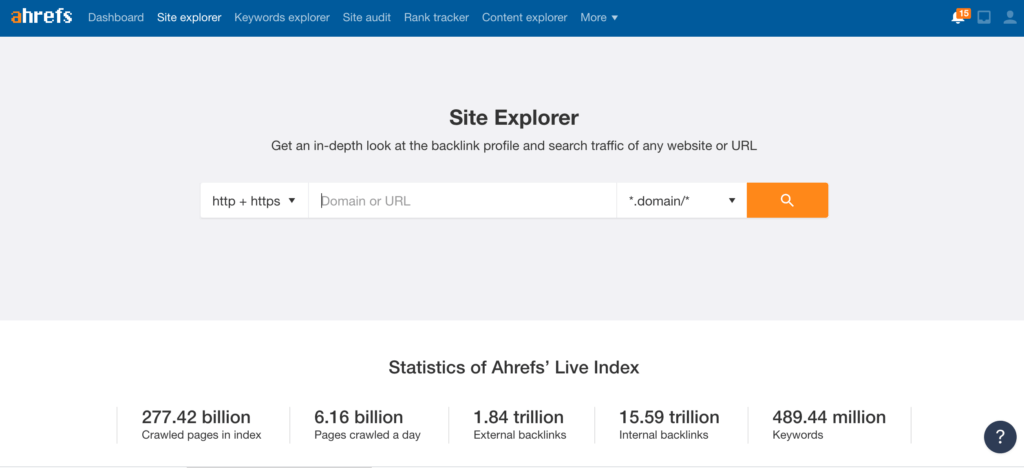
How To Do SEO Keyword Research
Google may have revised and updated its search algorithms numerous times, but one thing remains the same. You’ll need the right keywords to get good rankings on search engine result pages (SERPs). If you’re not using the right keywords, it would be difficult for your target audience to find you online.
But how exactly do you determine what keywords to use for your digital marketing campaign?
What is Keyword Research?
All digital marketing campaigns should be founded on solid keyword research. Researching keywords should be the first thing you should do if you want to promote your brand or business online.
To put it simply, keyword research is the process of identifying and analysing the search terms that people use to find specific information, including those concerning products and services, online. The amount of data it can provide can help you identify the kind of marketing strategy that you can create and run, the target phrases you should use for link building, and the types of content that would appeal to your audience. It can also help you determine how you can effectively and efficiently optimise your website.
Beyond helping you with the technical aspects of online marketing, keyword research also allows you to better understand your target market. It gives you an insight into their thoughts, fears, and desires, which are all essential in crafting an effective marketing strategy.
Importance of Keyword Research
Over the last ten years, there have been numerous changes in the way we do SEO. With Google making significant updates to its search algorithms, many will tell you that keywords are no longer that important.
This is true to some extent. These days, using keywords that exactly match a person’s search is less likely to get you on the first page of SERPs. Rather than exact keywords or key phrases, websites today are ranked according to how relevant their content is to users’ search intent, amongst other things. However, this doesn’t mean that keyword research is no longer necessary in SEO and digital marketing. Here’s why.
1. It tells you what your target audience is interested in
Keyword research enables you to identify the topics people find interesting. With the right SEO tool, such as Ubersuggest, it also helps you determine how popular a particular topic is amongst your audience. This allows you to identify which sort of content you should create to fulfil your audience’s needs.
Example from Google Keyword Planner
By doing keyword research, you’ll be able to provide answers to the questions your target audience is asking. This makes your content more relevant to their search intent.
2. It helps you obtain organic traffic
We would always advise to never skip keyword research. As this puts you at risk of targeting keywords and topics your target audience may not be interested in. Even if you have comprehensive and well-crafted online content, it won’t help you generate organic traffic if it contains keywords with no search volume.
On the other hand, if you conduct some prior research before writing your content, you’ll be able to identify the popular and relevant keywords that you can use. This will help you obtain organic traffic for your site.
3. It prevents you from wasting your time on topics that are too competitive
Keyword research not only helps you determine how popular and relevant a particular keyword or topic is. It also gives you an insight into how difficult it may be to rank for it. For instance, if you use Google Keyword Planner, you’ll find that the search terms “SEO” and “fishing” are difficult to rank for mainly because of their revenue potential.
The “Competition” column in the Keyword Planner will tell you how competitive a particular keyword is in paid search via its CPC (cost per click). It also shows you how complex promoting that keyword can be in organic search. By having access to such information, you can start generating better alternatives to the competitive keywords or topics you are initially targeting instead of wasting your time and effort on them.
4. It helps with on-page optimisation
On-page optimisation refers to the process of improving certain elements of the website, such as the meta descriptions, URL, and title tags, to improve its search rankings. Whilst Google has yet to confirm rumours that on-page elements play a role in how websites rank, several studies, including one made by Backlinko, showed that this seems to be the case. For instance, this graph by Pressidium.com revealed that websites with keywords on their title tags ranked higher on SERPs.
Because Google rarely reveals its secrets, it remains a good practice to include keywords in your site’s on-page elements. And how do you know the keywords you should use? By doing keyword research.
5. It enables you to identify new opportunities
As mentioned earlier, keyword research helps you better understand your target market. It gives you an idea of what their thoughts, fears, and desires could be. Having access to such information is truly a significant advantage amidst the ever-changing market demand.
With a better understanding of consumer market demand, it would be easier for you to come up with ideas that would bring your website more traffic. By using the right research tools, you can even develop new products and services, or identify new locations where your product or service offerings might be needed.
How to Conduct Keyword Research
There is more to doing keyword research than finding the keywords you should use for your SEO or online marketing campaign. It takes time and patience. If you want your research and your subsequent campaign to be effective and successful, make sure you don’t cut corners.
1. Ask questions about your business
Before you start researching keywords, first you must list down some relevant information about your business. Ask yourself the following questions:
- What does my business offer?
- Who are my customers?
- When are my customers buying?
- How are my customers searching for my products/services?
- Why do they need my products/services?
Make sure you don’t skip this step because it will serve as your guide for your keyword research. Also, it can help you create tailored content later on.
2. Create a list of relevant topics according to what you know about your business
The next step is to come up with general topics you think are related to your business. For example, if you provide gardening services, a few topics that might be related to your niche include garden maintenance, types of gardens, and gardening tools.
If you’re having a hard time coming up with topics, here’s a quick tip. Put yourself in the shoes of your customers and ask yourself what kind of related topics you would find interesting. From there, you should be able to list a few topics and even come up with sub-topics for each.
3. Identify relevant keywords
After listing down relevant topics, the next step is to identify the keywords that may be related to them. These are the search terms you think your customers would use when looking up information about the topics you’ve listed.
Using the example above (gardening services), some keywords and key phrases that your customers might use include:
- How to maintain a garden
- Starting your own garden
- Flower garden
- Top gardening tools
- How often should I maintain my garden
The list of keywords you’ll make shouldn’t be your final one. You have to narrow it down later to make them more specific. When you have your final list, you can use keyword research tools, such as Google Search Console and Ubersuggest, to identify the keywords you’re most likely to get good rankings. Repeat this process for every general topic you have.
You can do this with ahrefs.com, too. The site requires you to subscribe to their services but you can try their analytics tool for free for seven days. After signing up, group the keywords on your keyword list into categories. Expand each category using ahrefs.com’s Keyword Explorer tool. Then, click on each parent topic under the ‘Parent Topic’ column in the results list page and search for relevant keywords you can add to your list.
4. Consider related search terms
If you’re having a hard time coming up with more keywords, here’s a nifty trick that will help you. Visit Google.com and take a look at the related search terms that will appear when you type in a particular keyword. You can see these related search terms or search suggestions at the bottom of the search result page. These related search terms could help you identify the keywords and phrases you might have overlooked before.
5. Look for broad match and long-tail keywords for each general topic
Broad match search terms are key phrases that are shorter and more generic than long-tail keywords. More often than not, they contain only one to three words. In contrast, long-tail keywords are much longer and they often contain four words or more.
Broad match keywords are usually searched more frequently. This makes them more competitive and harder to rank for. The people using these keywords in their search could be looking for information that might be unrelated to what you are offering.
Long-tail keywords, on the other hand, are a great source of qualified traffic. Because these keywords tend to be more specific and intentional, the people using them are very likely to be looking for something that might be related to your business. This is why we recommend having a mix of broad match and long-tail keywords in your campaign because it can help you develop a well-balanced keyword strategy.
6. Find out how the competition is ranking for these keywords
Whilst you don’t have to do everything your competitors are doing, it is important to understand the keywords they are trying to rank for. The main reason for this is that it can help you come up with a better keyword strategy.
For instance, if a direct competitor is ranking for certain keywords that you’re also trying to rank for, you should re-evaluate your current strategy to improve your keywords’ current standing. However, whilst it is good to be competitive, you should also pay attention to the keywords your competitors often overlook. This allows you to take advantage of keywords that may be relevant to your business but aren’t that difficult to rank for.
Both paid and free analytics tools can help you identify the keywords your competitors are ranking for. For instance, a simple way to get a feel of the competition is to use incognito mode on your Internet browser. Then, manually search for specific keywords and determine the positions your competitors are in. Whilst this may be time-consuming, it can help you get the job done.
Another method is to use ahrefs.com. Click on ‘Site Explorer’ and then enter the URL of your competitor. Navigate to ‘Organic Keywords” to see the list of keywords your competitors are trying to rank for.
You can also use spyfu.com. Start by clicking on the ‘Overview’ tab. Then, type the URL of any website into the search box and hit enter to obtain the information you need.
7. Refine your keyword list
At this point, you should have quite a long list of keywords that you can potentially use. Take note that one of the goals of keyword research is to boost the effectiveness of your campaign by helping you identify the right keywords to use. As such, you must further refine your list to ensure that you’ll use only the best of the best.
A great way to refine your list is to use Google Keyword Planner and Google Trends. To have access to Keyword Planner, you must set up a Google Ads account. However, you don’t have to create an ad to use this tool.
Using the Keyword Planner, you can identify the search volume and traffic estimates of the keywords you want to use. Remove any duplicate keywords on your list, as well as those with either too little or too much search volume. But before you do this, make sure that you use Google Trends to determine the keywords’ trend history, relevance, and projections. This will help you determine if a low-volume search term could be useful to you later on.
8. Continue to re-evaluate your keywords
Finally, continue improving your keyword list. Even if you’re already getting good results with your keyword strategy, you shouldn’t rest on your laurels yet. According to experts, you must re-evaluate your keywords every few months, preferably once every quarter.
As you get better rankings on SERPs, you’ll find that you can add more keywords to your list. Therefore, continue refining your list to ensure that your keywords are always effective and relevant.
Conclusion
Even if Google has dramatically changed the SEO playing field with its numerous search algorithm updates, keyword research has remained a vital part of developing sound and effective digital marketing strategies. Without keyword research, you’d be at a lost on what your target audience wants. It would be difficult for you to know what type of content they would be interested in, as well.
Because it’s bad practice to go into battle unprepared, doing keyword research is the best way to gear up for anything that might come your way. Not only does it allow you to craft a solid SEO or content marketing strategy, but it also helps you develop a better understanding of your target market, which is vital if you want to trump the competition. As such, you should know how to conduct proper keyword research to ensure that you have only the best tools in your arsenal.
Need help with keyword research? We’re happy to assist you. Contact us today at Springhill Marketing and let’s discuss the solutions you need.
Drive Your Business Towards The Best Results.
Talk to us about how we can help.
